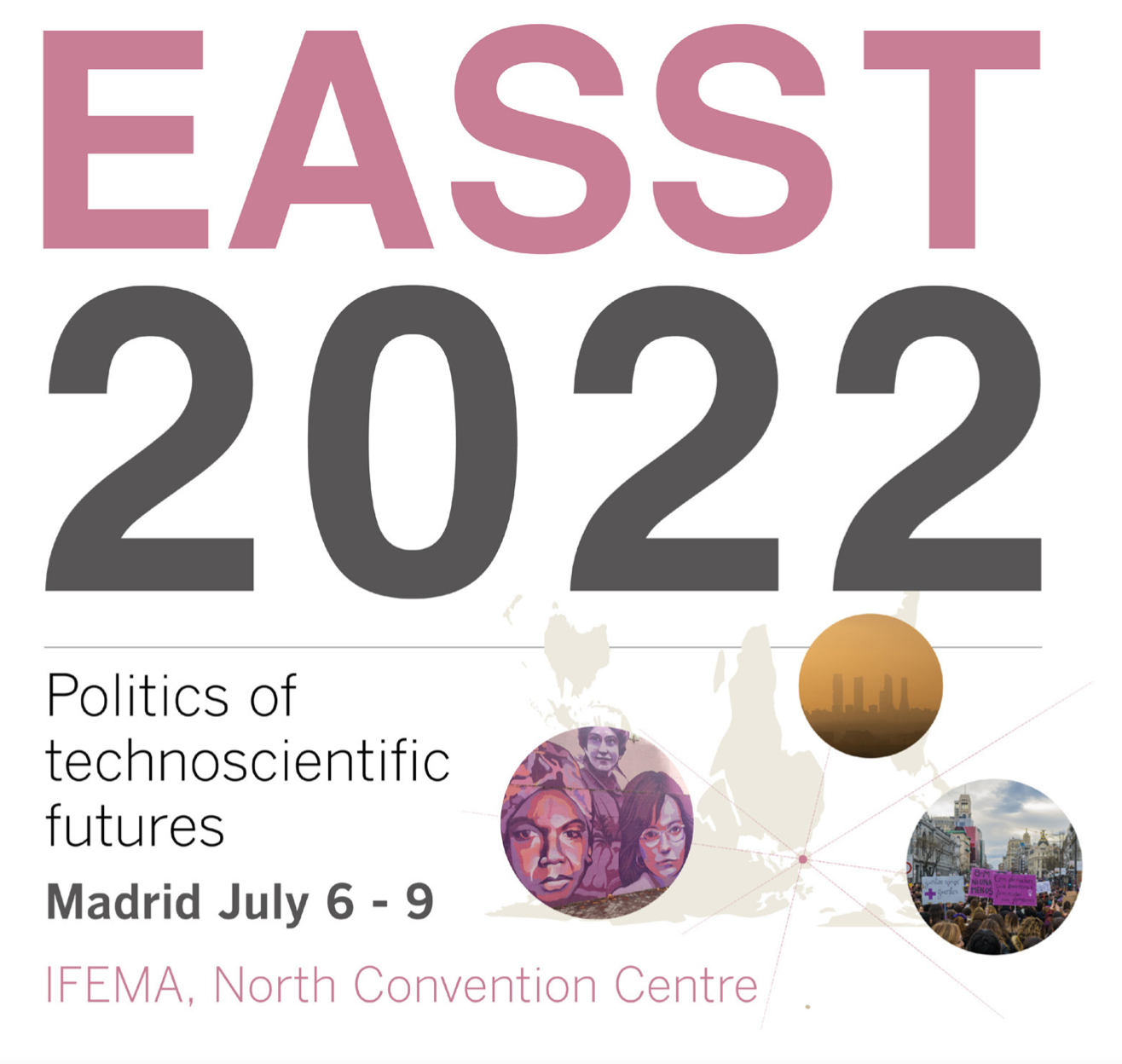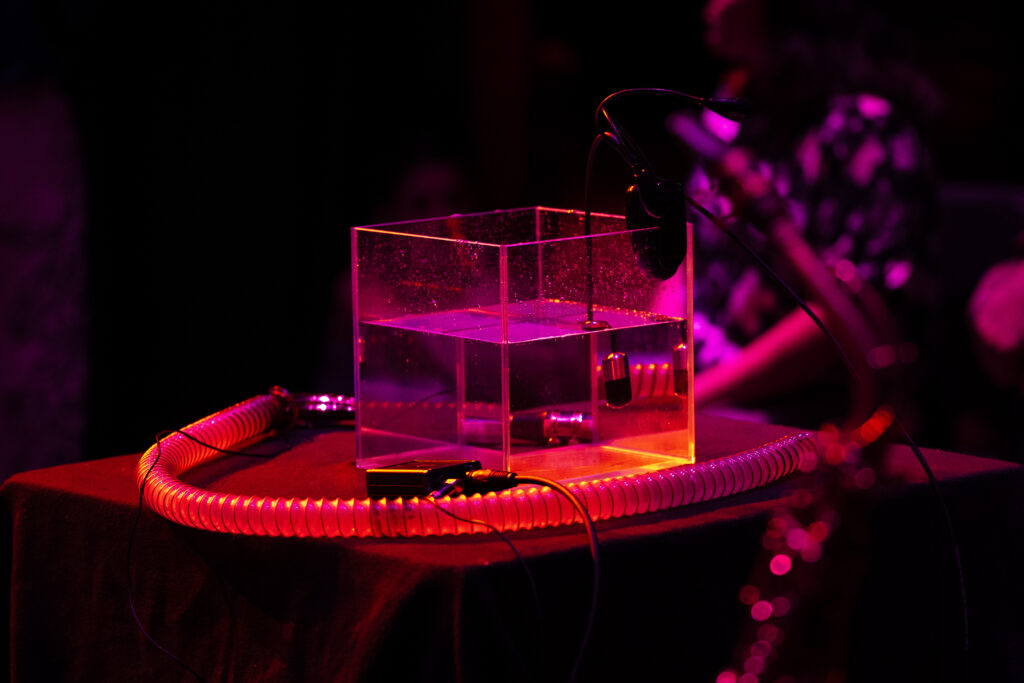| Date | 07/09/2022 |
| Time | |
| Location | Madrid, Spain |
| Researchers | |
| Affiliated research project |
|
On Saturday 9 July, Emma van der Leest contributed to EASST 2022, A biennial international conference Madrid, Spain.
EASST is the European Association for the Study of Science and Technology. EASST represents academics and researchers in the fields of science and technology studies, the social analysis of innovation and related areas of knowledge. It brings together a variety of disciplines and many of its members have qualifications in both natural science/engineering and social sciences.
Emma van der Leest was part of a closed panel chaired by our colleague Michelle Kasprzak about Art-Science futures in higher education (and beyond).
Emma talked about The Living Station, Materialize Matter in the Anthropocene.
She talked about that in recent years we have noticed that more designers and artists are designing with and for ecosystems, shifting away from ‘human-centered’ to ‘nature-inclusive’ design. The design of materials, products and recycling has never been so questioned and researched. How can we interfere and start working on possible alternatives that have positive impact on our environment and fits within the planetary boundaries? How do we as educators prepare our students to the pressing problems our planet and society is facing? What kind of expertise, knowledge, skills and facilities are needed to facilitate both the creative and critical progress of our future generation?
She talked about how a great number of or alumni, companies and designers in the field have started a new movement, the fourth industrial revolution: biofabrication. This movement goes hand in hand with the growing realization by designers that we radically have to change the way we design, by starting to look at the material and source itself rather than form or shape.
The term biofabrication emerged from the field of regenerative medicine and is now increasingly present in the product, food and material arena. What we can learn from this field and from science is the understanding of complex living systems, including humans. Cross-disciplinary collaborations and creativity prompted by scientific research will only expand and propelled by global imperatives such as the urgency to develop cleaner technologies and the rise of do-it-yourself biology. Both the expert, amateur and artist are necessary to solve negative impact of our industrial revolution.
Emma concluded her talk with talking about the realisation of our research platform and learning environment; Living Station Lab of the Willem de Kooning Academy to provide students a dynamic environment that both exists in a physical and hybrid way – a basic biolab where students learn about biophilic and regenerative design and get acquainted with a range of organisms like fungal mycelium, algae and bacteria.
Read more about the Living Station Lab here: https://livingstations.wdka.nl/



